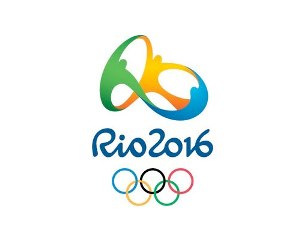
Should Golf be an Olympic Sport?
Continuing our recent feature on 'Golf in the Olympics - For or Against?' Nick offers his view below.
“I’d love to be an Olympian – doesn’t that sound good?!” - the thoughts of Padraig Harrington in the lead up to the 2009 PGA Championship, after golf was placed on the list of potential Olympic sports for the 2016 Games in Rio de Janeiro.
 Indeed it does, Padraig, but ask any sportsman and I’m sure they would say the same thing. It simply isn’t sufficient reasoning. The arguments stretch across a broad spectrum, from ethics to popularity, but the fact of the matter is that Olympic golf will not become the pinnacle of the sport.
Indeed it does, Padraig, but ask any sportsman and I’m sure they would say the same thing. It simply isn’t sufficient reasoning. The arguments stretch across a broad spectrum, from ethics to popularity, but the fact of the matter is that Olympic golf will not become the pinnacle of the sport.
Who could genuinely proclaim that it would surpass the Ryder Cup in terms of stature, both internal and external? What would a young, Chinese golfer prefer: to win gold at the Olympics and represent one sixtieth of his nation’s medal haul, or win the Open Championship at the home of golf?
You only have to look at Tennis, a sport with many social and structural parallels with golf, to answer the question of prestige. It was reinstated to the Olympics over twenty years ago, and only a severely misguided and deluded individual would dare to claim that it takes precedent over any of the Grand Slams or the Davis Cup.
Golf, I fear, would follow the same formula, and for that reason, amongst others, it should not have been granted inclusion for the 2016 Olympic Games.
Growing the game of golf
Phil Mickleson raised some interesting points when questioned on the matter. “It would bring in 168 different countries and their Olympic foundations and all those revenues... going towards the growth of the game of golf.”
In theory, this argument makes sense, as does his argument about benefits for suppliers, architects, the media, and ultimately, the players. My issue comes with consideration of scale. Yes, every country wants to be represented at the Olympics, but I find it very hard to believe that those countries without an existing investment in the game would pump in large amounts of money, exclusively on the back of an event that takes place every four years. It takes a higher level of commitment and prioritisation. As it currently stands, there is only space for 60 players (the top 15 in the world, plus 45 others, at a maximum of two per nation, unless more than two of the same nationality are in the world top 15) and places are based on world ranking and nationality. So, indirectly, Olympic golf appearances come down to success in tour golf, which demands investment from organisational bodies outside of Olympic jurisdiction.
There has to be both internal and external collaboration. It requires golf to be put at the forefront of respective countries’ sporting agendas. Simply put, the inclusion of golf in the Olympics isn’t going to lead to a series of changing attitudes on the game and a drastic increase in its following, as some have professed, not to mention the fact that it would completely disrupt the scheduling of both the PGA and European Tours.
The spirit of the Olympics
Another key issue with golf as an Olympic sport is that players play for themselves and for their own personal remuneration and benefit. The event closest to the proposed format for the Olympics is the World Cup of Golf. Each country has two members and the ultimate goal is victory for national pride, with the exception being that it is not an individual stroke play event. In golf, representing your country is not seen as a priority. The teams at the World Cup are so much weaker than they should be (based on world rankings and priorities), it is an event that is played in the off season, and it is an event that is much less popular than the majors, World Golf Championships, and even some of the larger events on tour.
The reality is that golf fans and players place far greater emphasis on the majors, because of tradition and strength of field. With a field resembling that of an average tour event, Olympic golf will struggle to captivate “new markets on a global scale.” Strong fields and great players make golf exciting and inspire new followers, something that simply cannot be defined by nationality. For any sort of credibility, the field needs to be drastically extended to include the top 50 in the world; then we can start thinking about ways to incorporate a wider variety of nationalities. Even then, I know what tournament I’d rather win.
Heading to 2016
As Mickelson points out, with regard to the majors, “we still capture the same audience that are already interested in the game.” How will this change with a format that creates a weaker field than any major championship? Wide scale exposure and publicity could be argued, but the issues remain: realistically, press coverage will be minimal in countries without a pre-existing golfing culture, and the vast majority of the coverage will be interactive ‘via the red button’, meaning the same people that always watch golf will tune in. Others won’t. And can you blame them? Even some staunch golf fans may feel the same way.
The beauty of the Olympics is that it draws global attention to sports often ignored or scarcely covered by the world’s press. How many of us can genuinely say that we watched the 2011 Sailing World Championships, or the Track Cycling World Cup in Kazakhstan? Very few. And yet, when we watch the Olympic action unfold in the velodrome, we wonder why we don’t watch indoor cycling religiously.
The Olympics gives professionals in smaller sports with minimal followings and exposure the chance to be national heroes. Sports like golf, tennis and football do not conform to the essence of the Olympics. Why do you think football tickets were the last to sell out for the 2012 Games? The majority of sports fans would know the number one ranked player in the aforementioned sports. Could the same be said for sprint Kayaking, Archery or Badminton? No, and yet we become fully engrossed and embroiled in the storylines emanating from the lesser known sports. That is the splendour of the Olympics, and something that risks being lost by the intrusion of mainstream sports.

Be part of the action with a selection of unique golf tournament experiences, from playing in a pro-am with the stars to watching the action at golf’s most illustrious events. Whether it’s the Masters or The Open, The Ryder Cup or WM Phoenix Open, build your own bespoke package with the experts at Golfbreaks.com.









